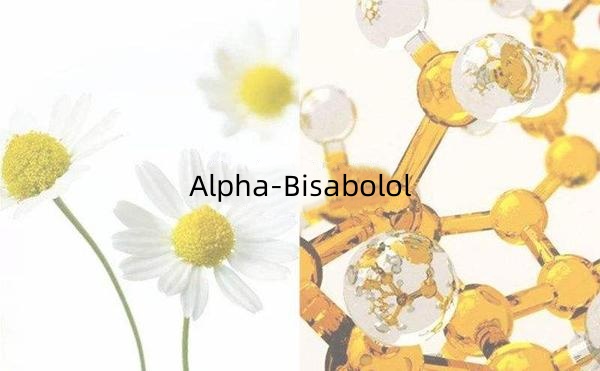In the fast-growing market for gentle, skin-friendly cosmetics, Bisabolol has emerged as a standout ingredient—celebrated for its ability to calm, protect, and enhance skin health without irritation. Derived primarily from the essential oil of the German chamomile (Matricaria recutita) plant (with biosynthetic alternatives for sustainable scaling), this terpene alcohol is redefining how brands approach sensitive, stressed, or reactive skin—blending nature’s soothing properties with science-backed efficacy.
Unmatched Soothing & Anti-Inflammatory Benefits
Bisabolol’s core strength lies in its exceptional ability to calm inflammation and irritation—two of the most common skin concerns driving consumer purchases. Unlike harsh anti-irritants that merely mask redness, Bisabolol works at the cellular level: it inhibits the release of pro-inflammatory cytokines (molecules that trigger swelling and redness) and soothes nerve endings to reduce discomfort. This makes it a game-changer for sensitive skin types, as well as for products targeting conditions like rosacea, eczema, or post-procedure irritation (e.g., after chemical peels or laser treatments). Clinical data shows that formulations with 0.5–1% Bisabolol can reduce visible redness by up to 30% in just 72 hours, while also relieving dry, itchy skin—all without disrupting the skin’s natural barrier.
Enhancing Skin Barrier & Boosting Efficacy
Beyond soothing, Bisabolol offers dual benefits that elevate its value in cosmetic formulations. It strengthens the skin’s lipid barrier by supporting the production of ceramides—critical for locking in moisture and fending off environmental stressors like pollution or cold weather. For dry or dehydrated skin, this translates to long-lasting hydration and reduced transepidermal water loss (TEWL). Additionally, Bisabolol acts as a “booster” for other active ingredients: it enhances the skin’s absorption of key compounds like vitamin C, retinol, and hyaluronic acid, making them more effective while mitigating their potential irritation. This means brands can create potent, multi-tasking products (e.g., anti-aging serums or brightening creams) that deliver results without the “purge” or stinging associated with harsh actives.
Versatility for Every Formulation & Skin Type
Cosmetic formulators prize Bisabolol for its remarkable versatility. It is stable across a wide range of pH levels (4.0–8.0) and temperatures, making it suitable for virtually all product types: serums, moisturizers, masks, sunscreens, and even makeup primers. Its lightweight, non-greasy texture ensures it works for all skin types—from oily and combination skin (which benefits from its mattifying, non-comedogenic properties) to dry and sensitive skin (which gains deep, gentle nourishment). It also has a subtle, pleasant chamomile scent, reducing the need for synthetic fragrances—a major plus for clean beauty brands catering to fragrance-sensitive consumers.
Aligned with Clean & Sustainable Beauty Trends
In an era where “natural” and “sustainable” are non-negotiable for 67% of global skincare shoppers (per a 2024 Beauty Packaging survey), Bisabolol checks all boxes. Plant-derived Bisabolol is sourced from responsibly harvested chamomile, while biosynthetic versions reduce reliance on agricultural land and water—appealing to eco-conscious brands and consumers. It is free from parabens, sulfates, and synthetic additives, fitting seamlessly into clean beauty lines.
Already adopted by leading brands (from luxury skincare to drugstore staples), Bisabolol has moved beyond “niche” status to become a staple in sensitive-skin and clean beauty formulations. It proves that effective skincare doesn’t have to be harsh—and that nature’s most gentle ingredients can be its most powerful. For brands aiming to meet the demand for calm, resilient skin, and for consumers tired of choosing between “effective” and “gentle,” Bisabolol is the ingredient bridging that gap.
Post time: Sep-15-2025





